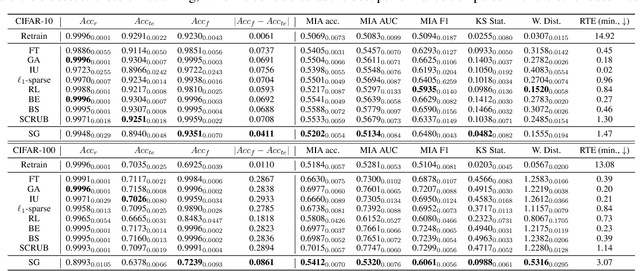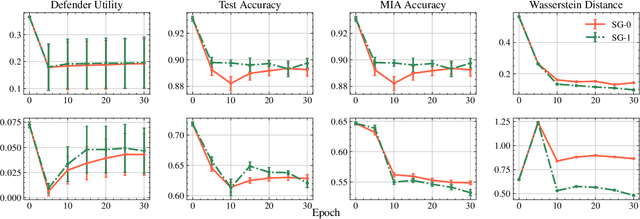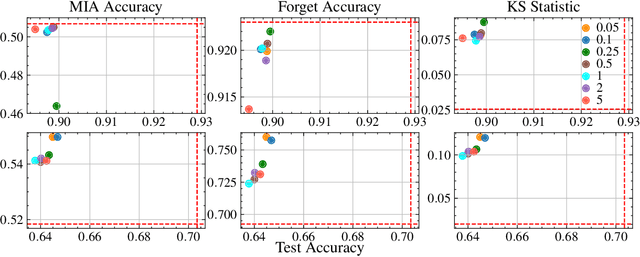Adversarial Machine Unlearning
Paper and Code
Jun 11, 2024



This paper focuses on the challenge of machine unlearning, aiming to remove the influence of specific training data on machine learning models. Traditionally, the development of unlearning algorithms runs parallel with that of membership inference attacks (MIA), a type of privacy threat to determine whether a data instance was used for training. However, the two strands are intimately connected: one can view machine unlearning through the lens of MIA success with respect to removed data. Recognizing this connection, we propose a game-theoretic framework that integrates MIAs into the design of unlearning algorithms. Specifically, we model the unlearning problem as a Stackelberg game in which an unlearner strives to unlearn specific training data from a model, while an auditor employs MIAs to detect the traces of the ostensibly removed data. Adopting this adversarial perspective allows the utilization of new attack advancements, facilitating the design of unlearning algorithms. Our framework stands out in two ways. First, it takes an adversarial approach and proactively incorporates the attacks into the design of unlearning algorithms. Secondly, it uses implicit differentiation to obtain the gradients that limit the attacker's success, thus benefiting the process of unlearning. We present empirical results to demonstrate the effectiveness of the proposed approach for machine unlearning.
 Add to Chrome
Add to Chrome Add to Firefox
Add to Firefox Add to Edge
Add to Edge